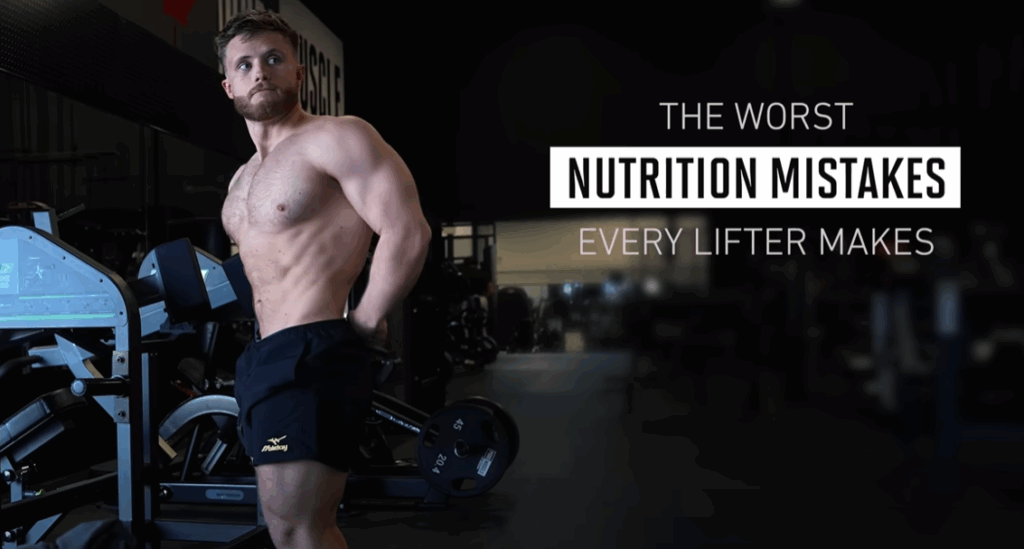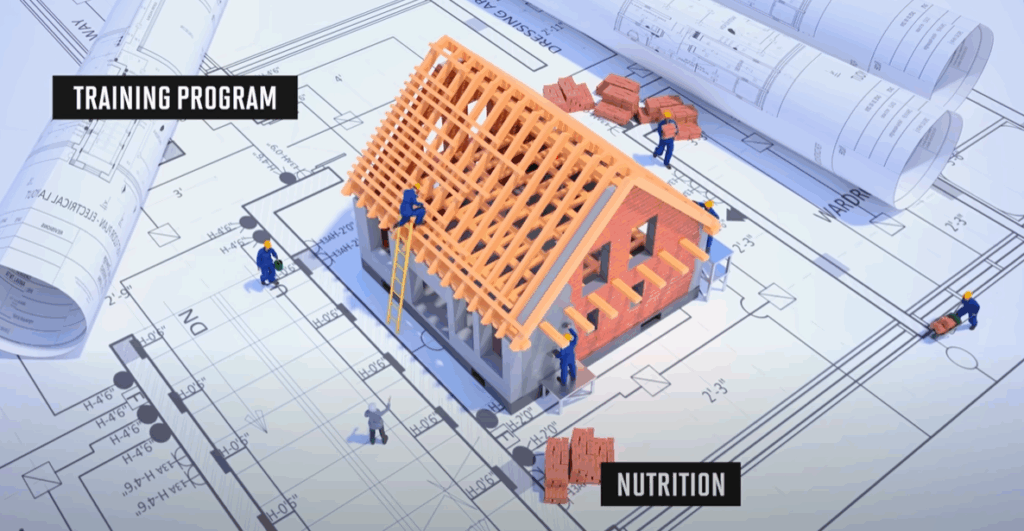Top 4 Nutrition Mistakes That Sabotage Muscle Gains (And How to Fix Them)
When starting your fitness journey, it’s easy to fall into the trap of misinformation—especially when it comes to nutrition. Many lifters, even experienced ones, make fundamental mistakes that limit progress or lead to unnecessary fat gain. If you’re serious about building muscle and improving your physique, understanding and correcting these common pitfalls can save you years of wasted effort.
1. Believing You Can “Eat Your Way” to More Muscle
One of the most persistent myths in bodybuilding is the idea that simply eating more food will automatically lead to bigger muscles. This belief often stems from observing professional bodybuilders who consume massive calorie intakes daily. But here’s the truth: muscle growth doesn’t respond to overeating the way some people think.
Muscle tissue builds in response to training stimulus, not excess calories alone. While you do need a caloric surplus to gain size, cranking your calories to extreme levels often leads to more fat than muscle. In fact, research from a 2013 study conducted on elite athletes showed that a group eating significantly more calories didn’t gain much more muscle than a group with a modest surplus—but they did gain far more fat.
A smarter approach is to aim for a manageable surplus. Somewhere between 5% and 15% above your maintenance level tends to be the sweet spot. For lean bulking, stick closer to the 5–10% range. If you’re okay with a bit more fat gain for the sake of faster strength increases, you can push it closer to 15–20%. Anything beyond that usually yields diminishing returns—and more frustration when it comes time to cut.

2. Overhyping Supplements (Even the Good Ones)
Supplements are a billion-dollar industry, and it’s no wonder why—marketers know how to appeal to people chasing fast results. But in reality, very few supplements make a meaningful difference in muscle growth.
That said, a handful are backed by solid science. Creatine, caffeine, and protein powder are the most effective and well-researched options. Even so, their actual impact is often exaggerated.
Take creatine, for instance. It’s one of the most widely studied sports supplements, and yes, it does enhance muscle performance and increase lean mass. However, typical gains associated with creatine range from about 2 to 3 pounds of muscle over time—not 10 or 20 like many expect. A systematic review showed an average gain of about 1.4 kg (roughly 3 lbs) of lean mass across several studies.
Caffeine can give you a noticeable energy and performance boost for your workouts, which may improve your consistency and intensity. But it’s not going to directly cause your muscles to grow faster. Think of it as a performance enhancer, not a muscle builder.
Protein powder is another great tool—especially for people who struggle to meet daily protein goals through whole food alone. But it’s still just a food source, not a magic muscle potion. If you’re already getting enough protein from your diet, adding a shake won’t add more gains.
Bottom line: these supplements can support your goals—but only when used correctly and with realistic expectations.

3. Eating Too Much Protein (Yes, Really)
It’s hard to go a day in the fitness world without hearing someone push ultra-high protein intakes. While protein is undeniably important for muscle repair and growth, there’s a limit to how much your body can actually use for muscle building.
More protein doesn’t necessarily mean more muscle. Training is the main driver of growth; nutrition plays a supporting role by providing the raw materials.
Current research suggests that for muscle growth in a calorie surplus, around 0.7 to 1 gram of protein per pound of body weight (or 1.6–2.2 grams per kilogram) is sufficient. In a calorie deficit—such as when cutting—protein needs are slightly higher to prevent muscle loss, ranging from 0.8 to 1.2 grams per pound.
For example, a 165-pound individual would do well with about 140 to 150 grams of protein per day while bulking, and perhaps 150 to 180 grams when cutting. Going beyond that doesn’t hurt, but it likely won’t help either—and it can crowd out other important nutrients.
Even if you can’t hit these targets perfectly every day, don’t worry. You can still build muscle with lower intakes—it may just take a little longer. The key is consistency over time, not perfection.

4. Misunderstanding Meal Frequency
One of the oldest fitness myths is that you need to eat six small meals a day to “boost your metabolism.” While meal timing can have minor effects on energy levels and appetite, it doesn’t significantly impact fat loss or muscle gain—at least not in the way many believe.
The number of meals you eat should align with your preferences and lifestyle. Some people thrive on intermittent fasting and prefer just two meals a day. Others feel better and more energized spreading meals out over four to six sittings. Both can be effective as long as calorie and protein targets are met.
When it comes to muscle growth, however, there is some evidence that eating protein-containing meals more frequently—at least three to four times per day—might be slightly more beneficial than only eating once or twice.
A 2020 study found that individuals who consumed three meals had a trend toward more muscle gain than those who ate only two, though the difference wasn’t statistically significant. Another study in 2021 showed no major difference in gains between those eating three meals versus six.
So the takeaway? For fat loss, meal frequency doesn’t matter as much—do what helps you stick to your diet. But for optimizing muscle growth, aim for at least three protein-rich meals per day, and up to six if you prefer.
Final Thoughts: What Really Matters for Nutrition Success
Many lifters waste years trying to hack their way to muscle gains through excessive eating, overpriced supplements, and rigid meal schedules. But the truth is simpler.
Your main focus should be:
- Maintaining a smart caloric intake based on your goal (slight surplus for bulking, slight deficit for cutting).
- Hitting an appropriate protein target daily.
- Following a consistent, progressive training program.
Don’t fall into the trap of trying to “out-supplement” poor fundamentals. And don’t let complex strategies distract you from what works.
If you want to streamline your nutrition, tools like the MacroFactor app can take a lot of the guesswork out. It dynamically adjusts your calorie and macro targets based on how your body responds week to week, helping you stay on track whether you’re bulking, cutting, or maintaining.
In the end, consistency, smart planning, and patience will build more muscle than any shortcut ever could.



